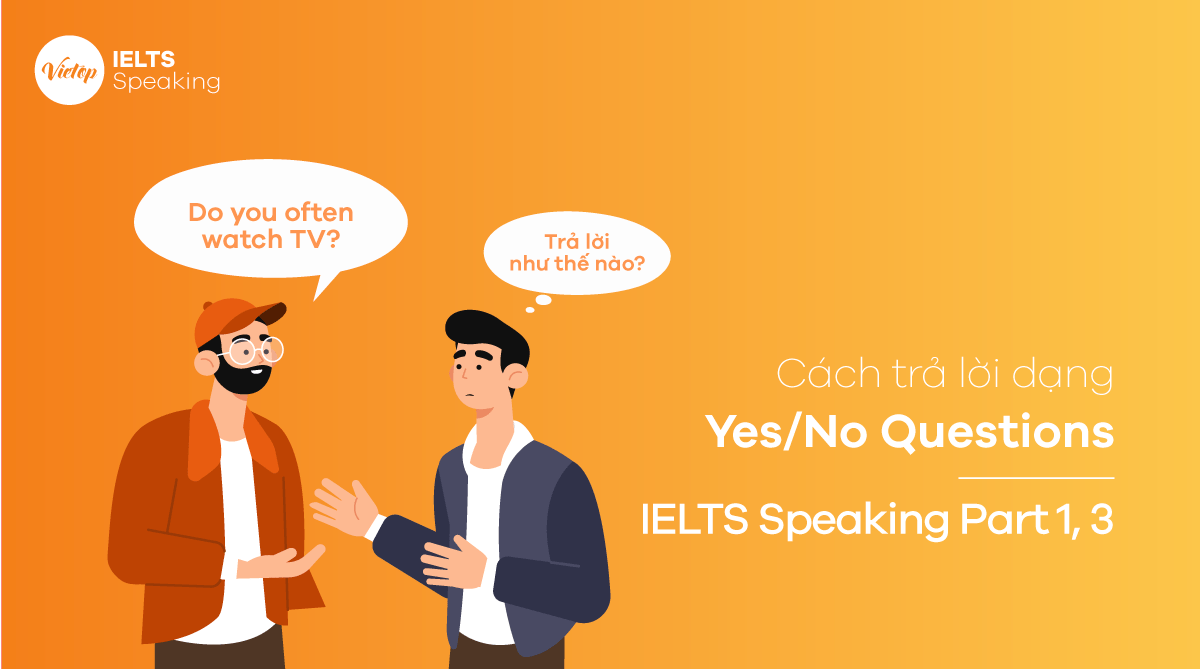Ở phần thi IELTS Speaking của kỳ thi IELTS, chủ đề Building và Describe a Building là một trong số chủ đề bạn có thể gặp phải, do đó bạn nên có sự chủ bị tốt về vốn từ vựng cũng như cách trả lời câu hỏi ở 3 part để đạt được kết quả tốt nhất.
IELTS Vietop sẽ gợi ý cho bạn một số từ vựng và mẫu trả lời cho chủ đề Building, cùng tìm hiểu nhé!
A. Một số từ vựng chủ đề Buildings
Tham khảo một số từ vựng để Describe a building thật tốt nhé!
1. Building materials
- Timber: gỗ
- Stone: đá
- Steel: a strong hard metal that is made of a mixture of iron and carbon (thép)
- Glass: kính. Example: These days, they can make glass that is so strong that you can have whole walls made out of it.
- Concrete: building material that is made by mixing together cement, sand, small stones and water (bê tông). Example: Concrete is a very popular building material because it is strong and can be moulded (đổ khuôn) into different shapes.
- Reinforced concrete: bê tông cốt thép. Example: Reinforced concrete is the perfect material for constructing large structures such as tower blocks and bridges.
- Marble: a type of hard stone, often with a beautiful lined pattern going through it, that can be highly polished. (đá hoa/ đá có vân). Example: The Taj Mahal is the most famous building in the world made from marble.
Xem thêm: Khóa học IELTS 1 kèm 1 – Chỉ 1 thầy và 1 trò, cam kết đầu ra
2. Types of buildings
- Skyscraper: a very tall building (tòa nhà cao chọc trời)
- Low-rise apartment: căn hộ có ít tầng
- High-rise apartment: căn hộ cao tầng
- Multi-storey car park: bãi đậu xe nhiều tầng
- Ruin: a building reduced to a state of decay and collapse (tàn tích)
- Warehouse: nhà kho (lớn). Example: There is a real trend for converting old warehouses into fashionable apartments.
- Office block: a building made up of many different offices, often of different companies. Example: Many old buildings in the city are being demolished to make way for smart new office blocks.
- Heritage: things, such as buildings and traditions, that are important to a nation’s history (di sản). Example: Some people complain that large historic houses cost a lot to maintain but they are part of our heritage and should be preserved.
- Detached house: nhà ở riêng lẻ
- Semi–detached house: nhà liền kề (1 nửa, vì sát với 1 căn hộ kế bên)
- Terraced house: dãy nhà liền kề
- Mansion: dinh thự
- Cottage: an old-fashioned small house (nhà pjong cách đồng quê)
- Bungalow: is a small house or cottage that is either single-storey or has a second storey built into a sloping roof. (Kiểu nhà thường chỉ có 1 hoặc 2 tầng, nhỏ và có hiên rộng.)
- Castle: lâu đài.
- Palace: cung điện
- Shopping centre/mall: trung tâm mua sắm
- Landmark: an object or building that is easily seen and recognized from a distance, especially one that enables someone to establish their location. (cột mốc). Example: The Eiffel Tower is probably the best-loved landmark in Paris.
- Public building: a building owned by the state or local government and used by the public, e.g. townhall, library, museum, leisure centre.
3. Parts of a building
- Porch: hiên
- Façade: the front of a building (mặt tiền)
- Balcony: ban công (Example: My dream home would have a balcony overlooking the sea.)
- Cellar: hầm rượu
- Roof: mái nhà
- Pillar: cột đình
- Attic: tầng gác mái
- Staircase: cầu thang
- Basement: tầng hầm
- Exterior: the outside of something
- Interior: the inside of something (nội thất)
- Dome: a rounded roof. Example: The dome of the Hagia Sophia in Istanbul is one of the most recognisable domes in the world.
4. Aesthetic perception
- Well-designed (a): thiết kế đẹp
- An eyesore (n): a building that is not attractive.
- Elegant (a): trang nhã
- Controversial (a): something that people either love or hate (gây tranh cãi)
- Pleasing geometric forms: có những họa tiết hình học bắt mắt
- Stunning (a): extremely impressive or attractive
- Eye-catching (a): very attractive or noticeable (bắt mắt)
- Iconic (a): mang tính biểu tượng cao. Example: The Sydney Opera House is Australia’s most iconic building.
- State-of-the-art (a): incorporating the newest ideas and features (hiện đại)
- Groundbreaking = innovative (a): tân tiến, nhiều cải tiến mới
- Spacious (a): rộng rãi, thoáng
5. Architectural style
- Modernist: typically characterized by simple designs in glass, steel and reinforced concrete and no ornamentation.
- Post-modern: an eclectic, colourful style of architecture and the decorative arts (hậu hiện đại)
- Standardized (a): được tiêu chuẩn hóa
- Traditional (a): theo kiểu truyền thống
- International style: phong cách quốc tế
- Art deco: characterised by simple, clean shapes, usually with a ‘streamlined’ look and decoration that is geometric or stylised forms of plants, animals and sunrays.
- High tech: is a style that incorporates elements of high-tech industry and technology into building design.
- Futuristic: extremely modern and unusual in appearance, as if belonging to a future time.
- Gothic: characterised by large expanses of glass, clustered columns, sharply pointed spires, intricate sculptures and pointed arche
- Classical: characteristic of the architecture of ancient Greece and Rome.
6. Features
- Practical (a): có tính ứng dụng cao.
- Multi-functional (a): nhiều chức năng
- High tech (a): công nghệ cao
- Energy-efficient (a): tiết kiệm năng lượng. Example: These days, one of the most important considerations in building design and the choice of building materials is energy efficiency.
- Eco-friendly: not harmful to the environment. (thân thiện với môi trường). Example: Installing solar panels (tấm chắn hấp thu năng lượng mặt trời) to cut down on the use of fossil fuels is one of the best ways to make your home eco-friendly.
7. Other expressions
- Plan (v): lên kế hoạch (xây dựng)
- Preserve (v): to keep looking the same (gìn giữ, bảo tồn)
- Renovate (v): cải tạo lại
- Demolish (v): phá hủy
- Refurbish (v) = redecorate: tân trang lại
- Derelict (a): bỏ hoang
- Rundown (a): xuống cấp
- Construct (v) = build
- Design (v): thiết kế
- Modernise (v): hiện đại hóa
- Mass-produced (a): sản xuất/xây dựng đại trà
- Standardized (a) được tiêu chuẩn hóa.
- Past its heyday: no longer at the peak of popularity or success (đã qua thời kỳ đỉnh cao)
- Fall into disrepair: to be in a damaged state (xuống cấp). Example: The cinema used to be a beautiful building but has become a bit of an eyesore since it fell into disrepair.
- Planning permission: formal permission from a local authority for the erection or alteration of a building. Example: It’s very difficult to get planning permission to make alterations to a historic building.
Xem thêm: Cách học bảng chữ cái tiếng Anh

Nhận tư vấn miễn phí khóa học hè
B. Bài mẫu chủ đề Describe a Building – IELTS Speaking
IELTS Speaking part 1
1. What types of building are there in your city?
Well, when it comes to my city, Ho Chi Minh city, the first thing that comes to people’s mind will be a developing metropolis with a mixture of the historical and modern buildings. The historical buildings consist of many temples, pagodas, and monuments, … meanwhile the modern ones include many high-rise apartments, commercial complexes and office blocks, …
2. Are historical buildings important?
Yes, absolutely. Actually, historical buildings are important to every city, region and even country. They are witnesses of t2e past and it’s very crucial and practical that we preserve them to pass on knowledge to the next generations.
Tham khảo:
Top 60 chủ đề IELTS Speaking Part 1 thông dụng nhất
IELTS Speaking part 2
| Describe a historical building |
I’d like to talk about an old church here in this city that was constructed in the second half of the 19th century. It’s Notre-Dame Cathedral, a very famous building as a tourist attraction apart from being a religious site for Catholics.
As far as I know, the cathedral was built by the French during the period of colonialism, so it’s been in existence for nearly a century and a half now. Today you can still see its bright-red bricks on the outside, and the architecture is French, of course, sort of Gothic architecture, I think. The main cathedral has 2 very tall bell towers on its left and right, probably reaching 60 metres or so. Inside the cathedral is a solemn hall for religious ceremonies.
I pass by the cathedral on my way to work every day, but, being a non-Catholic, I’ve actually visited it only a couple of times. I often see tourists and local people get together there at the garden right in front of the cathedral where there’s a Virgin Mary statue, and sometimes couples who are gonna get married get there to have their photographs taken because the view is so beautiful and reflects sort of Western style. So I must say that I’m proud my city has such a well-known church.
Vocabulary highlights
- Notre-Dame Cathedral: nhà thờ Đức Bà
- Tourist attraction: điểm thu hút du khách
- Colonialism: (thời kỳ) thuộc địa
- To be in existence: tồn tại
- Gothic architecture: kiến trúc Gô-tích
- Bell tower: tháp chuông
- Solemn (adj.): nghiêm trang
- Virgin Mary statue: tượng Đức Mẹ đồng trinh
| Describe a modern building You should say: – where it iswhat it looks like – what it is used forand explain – why you like/dislike it. |
Today I want to talk about Bitexco Financial Tower which is a skyscraper in Ho Chi Minh City, Vietnam. At its completion in 2010, it was the tallest building in the world, but now it no longer has that title. This building is quite unlike other skyscrapers around the world, as it reflects Asian identity in its architecture. Architects drew inspiration for this skyscraper’s unique shape from Vietnam’s national flower, the Lotus, the strong but beautiful flower that grows across much of Southeast Asia. This is not only an aesthetic choice; on the 52nd floor, the blossoming lotus bud shape is a non-rooftop helipad.
Bitexco Financial Tower is a mixed use project which includes office, retail, F&B and entertainment space so when I visit it, I usually hang out with my friends at the bottom where there are famous retailers. Although many people have visited the 49th floor, which is the observation deck where you can enjoy the view of the whole city or just feel the wind, I have never had a chance to do it because of its high price.
I really enjoy the leisure time I spent there due to not only its facilities but also its location which is in the heart of Ho Chi Minh city. However, since it is claimed to look like a blossoming lotus, it rather resembles a corn. In fact, every citizen all feel the same; and that’s why I don’t really appreciate its architectural design.
Vocabulary highlights
- Skyscraper: tòa nhà cao chọc trời
- Title: danh hiệu
- Asian identity: bản sắc châu Á
- Aesthetic: tính nghệ thuật
- Retailers: các cửa hiệu bán lẻ
- observation deck: đài quan sát
- facilities: cơ sở vật chất
- the heart of: trung tâm
- architectural design: phong cách kiến trúc
Xem thêm: Trọn bộ bài mẫu IELTS Speaking part 2
IELTS Speaking part 3
- What is the most important for a public building: design, location, or facilities?
Well, everything has its price so they are all important. However, in my opinion, the design and facilities should be paid more attention than the other. When it comes to design, it’s the appearance, the architectural or aesthetic style that should be discussed because it’s the first thing people notice of a building. In other words, it’s important to be eye-catching to make people have a good impression. Then, the facilities inside also play a key role. If there are a lot of entertaining or artsy space in the building, people would be drawn to be there even though the location is inconvenient.
Vocabulary highlights
- everything has its price so they are all important (idioms): mọi thứ đều có giá trị của nó
- the architectural or aesthetic style: phong cách kiến trúc hoặc phong cách nghệ thuật
- play a key role: đóng vai trò quan trọng
- entertaining or artsy space: không gian giải trí hoặc không gian mang tính nghệ thuật
2. Do you think the appearance of a building is important?
Absolutely. No one likes an eyesore. It is like something really ugly and big at the same time that you have to always notice it from afar. The appearance of a building is considered to be as important as a good impression of a person. For example, when a tenant enters a building what are the things that they see? It must be the architectural or aesthetic style. Therefore, in a highly competitive market place, the appearance of a property can not only go a long way to attracting new clients, but also can help retain clients and maximize asset value. In fact, it may become something iconic of the town or a city if it is well-designed.
Xem thêm:
Top các chủ đề thường gặp ở phần thi IELTS Speaking Part 3
Các dạng câu hỏi trong IELTS Speaking Part 3 thường gặp
Vocabulary highlights
- Tenant: người thuê nhà
- highly competitive market place: thị trường cạnh tranh cao
- property (n) = building
- asset value: giá trị tài sản
- retain (v) = hold
C. Bài tập
Part 1
- What types of buildings are there where you live?
- Are there any monuments in your hometown?
- Do you like to visit historic buildings?
- What are the landmarks in your hometown?
- Have you ever visited a famous structure?
Part 2
- Describe a style of architecture that you like.
You should say:
- what style it is
- what it looks like
- where you can see it
- and explain why you like this style.
2. Describe a new public building you would like to visit.
You should say:
- Where it is
- What it is like
- What you know about it
- And explain why you would like to visit it
Part 3
- What kinds of people like to visit historic buildings?
- Do you think it’s worth the money to preserve old buildings?
- How have buildings changed in the past few years?
Hy vọng với những thông tin về chủ đề Building, bạn đã có thể Describe a building một cách dễ dàng và thú vị, giúp ích cho bạn trong quá trình luyện thi IELTS nhé!
IELTS Vietop












hay ?